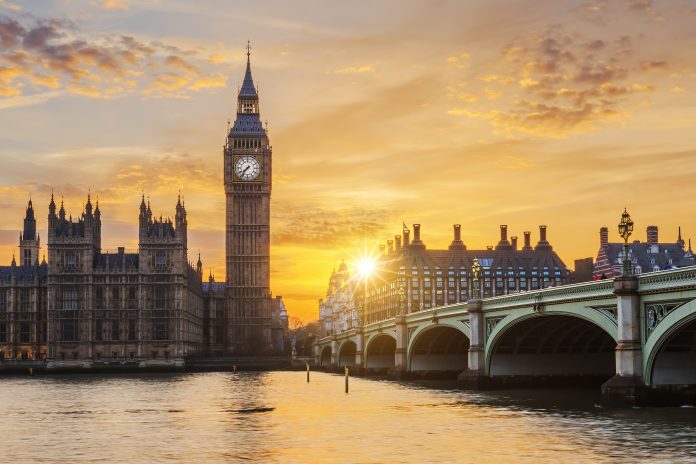This article has been written by Randeep S Rana, pursuing Diploma in Legal English Communication – oratory, writing, listening and accuracy, and has been edited by Oishika Banerji (Team Lawsikho).
This article has been published by Sneha Mahawar.
Table of Contents
Introduction
British prerogative or in simple words Royal prerogative is a birthright accorded to the Royal families under the British Constitution. Under the same, a King/Queen/Monarch can act on his/her own will without any approval/assent of the Parliament of a Nation and no question can be raised upon his/her Majesty’s act before a court of law. It is a noteworthy constituent of the British Constitution. A prerogative warrants a person to deploy forces, declare wars, grant pardons, regulate civil services, sign treaties, to grant honours and awards among many other privileges. This article discusses whether the British prerogative is to be considered as a critical section of the British Constitution or not.
Historical perspective on British prerogative
Royal prerogatives were established in a time when the monarch had absolute power, which was considered to be derived from God. The roots of the Royal Prerogative goes to the middle ages where the King had the supreme authority of the Kingdom and as a prerogative, a King could not be made answerable in his own court. It was based on the principles that a “King can do no wrong”, “a King never dies” and “a King can not be bound by statute unless the statute said so” and statues were made by a King. In those times, the king was both the feudal lord and the head of the kingdom, at the same time. The king had a residual power to deliver justice and there was no court where a king could be prosecuted/sued, the king himself with his council of acts as a court and delivered justice and the decision of the King shall be final and cannot be challenged anywhere.
Two eminent jurists of their time Blackstone and Dicey had different views upon the Royal prerogatives. While Blackstone claimed the Royal prerogatives can be applied to the rights which a King/Queen can relish alone and not in common among the kingdom, Dicey had a view that prerogative is a residue of an arbitrary and discretionary command which was legally handed in the hands of a King/Queen/Monarch. However, from long ago, Royal prerogatives were considered an embarrassment or a disgrace to the British Constitution because of their unquestionable authority and against the rule of law.
Soon questions started arising upon these discretionary and arbitrary powers of kings and the main shift was caused after Magna Carta 1215 when these discretionary powers were limited which were absolute prior to this time. Later then came the Statute of Proclamations 1539 which added more hindrance in the Monarch’s powers. And after Bills of Rights 1689 parliament started opposing and questioning the absolutism of the Monarch’s power.
With time, it became established that the bulk of prerogative powers could be exercised only through and on the advice of ministers responsible to Parliament. Although the monarch retained formal power of appointment and removal of ministers and ministries, the development of collective ministerial responsibility made it increasingly difficult for the King or Queen to exercise such power freely against the wishes of the Prime Minister and Cabinet. However, the ability of ministers to rely on prerogative powers continues to give rise to problems of accountability.
Present scenario
The Royal Prerogatives these days are considered to be the quintessential source of the British Constitution. The role of Parliament nowadays is increased and Royal Prerogative no longer can be said as discretionary power. However, Monarch is a nominal head of the Government. All functions are exercised by the council of ministers but under the name of the Monarch. In present times powers of the Monarch are very limited and they are strictly subject to common law, freedom of citizens and any statute and Monarch can longer be the absolute authority of power and rights of citizens and law comes before the discretion of the Monarch. The majority of these Royal prerogatives are exercised by ministers in the name of the crown and they can act without any concurrence of the Parliament.
Types of royal prerogatives
These prerogatives can be exercised either personally or politically.
Personal prerogative
- No criminal proceeding is maintainable in the name of Monarch in person, it is based on the belief that a King can do no wrong. However, civil immunity of the Monarch had been removed by “The Crown Proceedings Act of 1947 (UK)”.
- The Monarch always remains; only the person holding the Monarch is changed, it is believed that the “King never dies”.
- King cannot be an infant and a King is not bound by any statute unless it is expressly declared by that particular statute.
Political prerogatives
Political prerogatives can further be detailed in subclasses
- Administrative Prerogative – The monarch is responsible for the appointment of the Prime Minister (Leader of the Majority) and other members of the cabinet. Monarch is also the head of the Armed forces and the members of the Armed forces are also recruited by Monarch.
- Legislative Prerogative – The monarch can summon or dissolve the Parliament with the consent of ministers, however legally he can do so without the consent of ministers but the act would be unconstitutional. Also, a bill, in order to become an Act, needs the approval of the crown.
- Judicial Prerogatives – This is also termed as mercy prerogative which further be divided in two parts: –
- Grant of Pardon – Pardon can be granted with or without imposing any conditions thereon. The Crown can grant pardon on the advice of the Home Secretary and it is subject to the judicial review as held in case of “Council of Civil Services Union versus Minister of Civil Services- The GCHQ Case [1985] AC 374, [1985] ICR 14”.
- Grant of nolle prosecui – It means stopping of legal proceedings against a person but it does not result in acquittal rather the accused can be later on charged for the same charge. The Attorney General of England and Wales can act in the name of the crown while exercising this power.
- Foreign and Other Prerogatives- Declaring war and peace, signing of treaties, recognising the status of foreign countries, etc are some of many foreign prerogatives. Apart from this Crown also appoints Bishops in church on advice of the Prime Minister, grant of awards on the advice of the executive, etc.
Judicial impact of British prerogative on their constitution
In Lord Advocate v. Dumbarton District Council [1990] 2 AC 580, Lord Keith restated the immunity provided to the Crown and these immunities also apply to Crown’s servants undertaking certain activities of the state.
In R v. Secretary of State for Foreign Affairs, ex p Lord Rees-Mogg [1994] QB 552 the court was unwilling to question the use of the prerogative power to sign and ratify the Treaty of the European Union. The European Union Act, 2011 created a justiciable right to a referendum and consequently, the denial of a referendum could have been challenged via the courts.
In De Keyser’s (1920) (UK), and Fire Brigades (1995) (UK) it was suggested that when a statute is created and put in the dominating position the prerogatives’ powers will automatically be docked.
Conclusion
In toto it can be analysed that Royal prerogatives are still in a dominating position and the supremacy of the Crown/Monarch cannot be omitted when we discuss its prevalence in the British Constitution. However, the degree of arbitrariness and discretion is not as much reflected as it was seen in the medieval period when the King was considered to be the fountain of Justice and the guardian of peace. The British Constitution needs a reforming amendment pertaining to the Royal Prerogative but every strong building stands needs a strong foundation to stand tall and small steps towards it would ultimately result in the reformation of the British Constitution where the citizen’s rights would have more privileges than of the Crown.
References
- https://www.juscorpus.com/royal-prerogatives-in-the-british-constitution/
- https://academic.oup.com/icon/article/8/1/146/682649
- https://www.lawteacher.net/lectures/public-law/the-royal-prerogative/#:~:text=In%20Blackstone’s%20view%2C%20the%20royal,by%20the%20head%20of%20state
Students of Lawsikho courses regularly produce writing assignments and work on practical exercises as a part of their coursework and develop themselves in real-life practical skills.
LawSikho has created a telegram group for exchanging legal knowledge, referrals, and various opportunities. You can click on this link and join:
Follow us on Instagram and subscribe to our YouTube channel for more amazing legal content.
 Serato DJ Crack 2025Serato DJ PRO Crack
Serato DJ Crack 2025Serato DJ PRO Crack












 Allow notifications
Allow notifications


